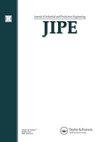A fuzzy stochastic goal programming for selecting suppliers in case of potential disruption
IF 4.6
Q2 ENGINEERING, INDUSTRIAL
Journal of Industrial and Production Engineering
Pub Date : 2023-09-19
DOI:10.1080/21681015.2023.2259385
引用次数: 0
Abstract
ABSTRACTDue to globalization and the new characteristics of the business, companies face various challenges to ensure their continuity and competitive advantages. COVID-19 pandemic can be an extreme event that will eventually force many businesses and all industries to redesign and transform their global supply chain model? Challenges concerning mainly reducing the operating cost which is based on selecting the optimal suppliers to provide a reliable product. This study contributes to solving a supplier selection problem under disruption risk due to the lack of literature reviews with a lack of multi-methodological perspective for the fuzzy stochastic notions and quantitative techniques for the quantification of risk alternatives. Prior studies are neglecting to consider the value of risk and prefer to discover chances for optimizing anticipated costs or profits. This study proposed a fuzzy stochastic goal programming approach for selecting the optimal supplier under disruption risk. The proposed model incorporates multiple criteria such as capacity, stochastic demand, and probability of disturbance. The problem of stochastic combinatorial optimization obtained is presented as a program of fuzzy random aim by integrating techniques of value at risk and conditional risk value. Numeric samples and calculation results are included. The results of the models help the decision-maker to optimize the selection of suppliers in the event of a disturbance risk problem by an estimated value at risk and by simultaneously minimizing the conditional value of the risk and demonstrate the efficacy and acceptability of the created risk-averse technique as well as the effects of risk factors on our model behavior.KEYWORDS: Screening supplierrisk of disturbancefuzzy stochastic objectiveConditional value of riskrisk aversion Disclosure statementNo potential conflict of interest was reported by the authors.Additional informationNotes on contributorsFaiza HamdiFaiza Hamdi is an Assistant Professor at the College of Business, University of Jeddah in Saudi Arabia, where she is an integral member of the Supply Chain Management Department. Dr. HAMDI brings a diverse academic background to her role, having earned a Ph.D. in Quantitative Methods from the University of Sfax, Tunisia, and another in Industrial Engineering from the University of Toulouse, France. Her academic pursuits align closely with her research interests, which encompass a broad spectrum of subjects within the field of Supply Chain Management (SCM). Dr. HAMDI's expertise extends to areas such as logistics, optimization, inventory management, simulation, lean manufacturing, and green supply chain practices. Currently, her research is particularly focused on the intricate realms of optimization in supply chain management and the dynamic landscape of risk management within this domain.Laila MessaoudiLaila Messaoudi serves as an Assistant Professor at Gabes University in Tunisia. She earned her Ph.D. in quantitative methods from the University of Sfax, Tunisia. Her primary areas of research interest encompass Fuzzy Stochastic Optimization and Portfolio Management. Her ongoing research is centered around the fields of Optimization, Data Science, and Machine Learning.Jalel EuchiJalel Euchi serves as an Assistant Professor at Gafsa University, Tunisia, where he actively contributes to the academic landscape. He earned his Ph.D. in Computer Science in 2011, specializing in optimization and transportation problems, from Le Havre University in France. Additionally, Jalel Euchi is an Associate Researcher affiliated with the OLID Laboratory at Sfax University, Tunisia. His research portfolio showcases a wealth of publications in esteemed journals such as 4OR, IJOR, Energy Reports, Logistics, Energy Systems, Renewable and Sustainable Energy Reviews, Swarm and Evolutionary Computation, Management Decision, JORS, and Vehicular Communications. He also dedicates his expertise to peer-reviewing articles for prominent publishers like Springer, IEEE, Taylor and Elsevier. Furthermore, Jalel Euchi is a dedicated life member of the Operational Research Society of Tunisia. His primary research interests encompass a wide spectrum of topics, including complex vehicle routing problems, the development of heuristics and meta-heuristic algorithms to tackle NP-Hard problems, computational operations research, decision-making processes, and research related to logistics and supply chains.潜在中断情况下供应商选择的模糊随机目标规划
摘要由于全球化和商业的新特点,企业为保证其连续性和竞争优势而面临各种挑战。COVID-19大流行可能是一个极端事件,最终将迫使许多企业和所有行业重新设计和转变其全球供应链模式?挑战主要是降低运营成本,这是基于选择最优的供应商来提供可靠的产品。由于缺乏文献综述,缺乏模糊随机概念的多方法学视角和量化风险选择的定量技术,本研究有助于解决中断风险下的供应商选择问题。先前的研究忽略了考虑风险的价值,而倾向于发现优化预期成本或利润的机会。提出了一种模糊随机目标规划方法,用于在中断风险下选择最优供应商。该模型结合了容量、随机需求和干扰概率等多个标准。将风险值技术与条件风险值技术相结合,将得到的随机组合优化问题表现为模糊随机目标规划。文中给出了数值算例和计算结果。模型的结果帮助决策者在出现干扰风险问题时通过风险估定值和同时最小化风险的条件值来优化供应商的选择,并证明所创建的风险规避技术的有效性和可接受性以及风险因素对模型行为的影响。关键词:供应商筛选干扰风险模糊随机目标风险规避条件值披露声明未发现潜在利益冲突作者简介:faiza Hamdi faiza Hamdi是沙特阿拉伯吉达大学商学院的助理教授,也是供应链管理系的重要成员。HAMDI博士拥有多元化的学术背景,她获得了突尼斯斯法克斯大学的定量方法博士学位,以及法国图卢兹大学的工业工程博士学位。她的学术追求与她的研究兴趣密切相关,她的研究兴趣涵盖了供应链管理(SCM)领域的广泛学科。他的专业知识涉及物流、优化、库存管理、模拟、精益制造和绿色供应链实践等领域。目前,她的研究主要集中在供应链管理优化的复杂领域和该领域内风险管理的动态景观。aila Messaoudi是突尼斯加贝斯大学的助理教授。她在突尼斯斯法克斯大学获得定量方法博士学位。她的主要研究兴趣包括模糊随机优化和投资组合管理。她正在进行的研究主要集中在优化、数据科学和机器学习领域。Jalel Euchi是突尼斯加夫萨大学的助理教授,在那里他积极地为学术领域做出贡献。2011年,他在法国勒阿弗尔大学(Le Havre University)获得计算机科学博士学位,专攻优化和运输问题。此外,Jalel Euchi是突尼斯斯法克斯大学OLID实验室的副研究员。他的研究组合在诸如4OR, IJOR,能源报告,物流,能源系统,可再生和可持续能源评论,群体和进化计算,管理决策,JORS和车辆通信等受人尊敬的期刊上发表了大量出版物。他还致力于为Springer、IEEE、Taylor和Elsevier等知名出版商进行同行评议。此外,Jalel Euchi是突尼斯运筹学学会的终身会员。他的主要研究兴趣涵盖了广泛的主题,包括复杂的车辆路线问题,解决NP-Hard问题的启发式和元启发式算法的发展,计算运筹学,决策过程以及与物流和供应链相关的研究。
本文章由计算机程序翻译,如有差异,请以英文原文为准。
求助全文
约1分钟内获得全文
求助全文
来源期刊

Journal of Industrial and Production Engineering
ENGINEERING, INDUSTRIAL-
CiteScore
7.50
自引率
6.70%
发文量
21
 求助内容:
求助内容: 应助结果提醒方式:
应助结果提醒方式:


